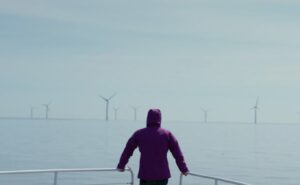US-based aluminium giant Alcoa has announced that it will close its Point Henry smelter in Geelong, Victoria, as well as two rolling mills – one in Geelong and one in Yennora, NSW – in a move that will cost Australia’s beleaguered manufacturing industry another 1,000 jobs and deliver a fresh blow to electricity utilities already struggling against falling demand.
The decision to close the plants was announced on Tuesday morning by Alcoa Australia, after being finalised at a meeting of the board. The Geelong smelter will now close in August and the rolling mills by the end of the year.
The company said that a two-year review of the 50 year-old Port Henry plant found it had become unprofitable due to “a combination of factors,” including metal prices, input costs and exchange rates.
“Despite the hard work of the local teams these assets are no longer competitive and are not financially sustainable today or into the future,” said Klaus Kleinfeld, the company chief executive officer.
But as attention turns to the economic and job losses, the closing of the brown-coal fired Port Henry smelter will have implications that extend beyond Australia’s struggling manufacturing industry.
“As a very large user of electricity, Point Henry’s closure will also have ripple effects across Victoria’s electricity industry,” said Environment Victoria’s Mark Wakeham in a statement on Tuesday.
Aluminium smelting is is one of Australia’s biggest energy consumers, using a total of around 15 per cent of Australia’s overall electricity supply. And at 10 around per cent of Australia’s smelting capacity, Point Henry is one of Victoria’s biggest consumers of brown-coal-fired electricity – around 40 per cent of which is supplied by the Alcoa’s purpose-built Anglesea coal mine and power station.
“Point Henry has an average demand of 360MW of electricity, equivalent to one-quarter of Hazelwood power station’s output,” said Wakeham.
“It is highly likely that existing coal-fired generation at Anglesea or at Yallourn or Hazelwood will be mothballed or retired as a result of Alcoa’s decision, despite Alcoa’s stated intent to try and find a buyer for the Anglesea mine and power station.”
Although highly unpopular among Victoria’s Surf Coast residents, Alcoa’s Anglesea coal power facility was granted a 50-year lease extension by the Baillieu Government in late October 2011. And in December last year, Alcoa applied to the Essential Services Commission for an independent licence to generate power, which would allow it to sell the energy directly to the market.
Controversially, Victorian taxpayers subsidised the state’s aluminium smelters for a long time, after the Cain government finalised a deal with Alcoa in the mid-1980s to build and operate the Portland plant. In 2009, research by The Age found that the eventual cost of subsidies could be more than $4.5 billion by the time the contracts were to expire in 2014 and 2016.
In 2010, Alcoa signed long-term electricity contracts with Australia’s largest electricity generator, Loy Yang Power, to supply the smelters at Portland and Point Henry until 2036. And while the deal reassured the unions – and enraged environmentalists – at the time, it has done nothing to prolong the life of the smelter.
More recently, Coalition governments have blamed the carbon price for Alcoa’s financial woes, but Alcoa itself has denied this, with a company spokeswoman confirming in a statement today that “the carbon tax was not a factor in the decision to close Point Henry smelter or the rolled products business”.
As Wakeham notes, Alcoa has instead done quite well since the carbon tax was introduced, receiving free permits for 94.5 per cent of their emissions – a package worth $1.7 billion over five years. And in 2012 Alcoa received a further $40 million assistance package from the federal government.
“The fact is that there is an oversupply globally in aluminium smelting and the industry is increasingly moving to countries with larger smelters and low emissions energy sources. Victoria is the only place in the world where aluminium is being produced with brown coal powered electricity.”
In Australia, all but one of the country’s aluminium smelters rely on cheap (and dirty) coal power. The exception is Rio Tinto’s Bell Bay, which is mostly powered by hydro.
And it’s not just in Australia that Alcoa is struggling with cheap power supply. In Canada, it was reported in October last year that the company could be forced to close all three of its smelters in the province of Quebec, with electricity supply cost for the plants expected to jump 60 per cent.
As in Australia, the power Alcoa had been receiving in Quebec had been supplied at a discount price. But as of January 1, 2015, the annual electricity bill will go up from $C350 million to $C570 million.
In Australia, says Wakeham, the challenge for governments “is to develop a jobs agenda and plan that looks forward to the industries of the future rather” than stranding industries through policy that ignores the direction in which the world is headed.
“The rapid loss of manufacturing jobs requires a change in direction and a rethink,” Wakeham said. “Why isn’t Victoria protecting and pursuing jobs in solar water heating in factories in the south-eastern suburbs, or wind tower manufacturing in Portland, instead of attempting to develop new polluting brown coal mines?”








